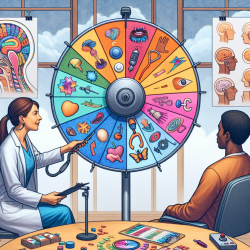The field of neurology is constantly evolving, with new research paving the way for innovative treatments and improved patient outcomes. One such area of focus is Huntington's Disease (HD), a debilitating neurodegenerative disorder that affects movement, cognition, and behavior. Recent advancements in drug development are offering new hope for patients and practitioners alike. This blog post will explore key findings from the research article "Huntington’s Disease Drug Development: A Phase 3 Pipeline Analysis" and discuss how practitioners can implement these insights to enhance their skills and improve patient care.
Understanding the Current Landscape of HD Treatment
Huntington's Disease is characterized by a genetic mutation that leads to the progressive degeneration of nerve cells in the brain. While there is currently no cure, several medications aim to manage symptoms and improve quality of life. The research article highlights nine clinical trials focusing on eight different drugs that are either FDA-approved for other conditions or are seeking approval specifically for HD treatment. These drugs include metformin, dextromethorphan/quinidine, deutetrabenazine, valbenazine, Cellavita HD, pridopidine, SAGE-718, and RO7234292 (RG6042).
Key Findings from Phase 3 Trials
- Metformin: Known for its use in diabetes management, metformin shows promise in activating AMPK to improve neuronal survival in early-stage HD. Practitioners should consider its potential benefits and timing when treating HD patients.
- Dextromethorphan/Quinidine: This combination therapy is being evaluated for its efficacy in treating irritability in HD patients. Understanding its role can help practitioners manage emotional symptoms more effectively.
- Deutetrabenazine and Valbenazine: Both drugs target chorea symptoms associated with HD. Their differing mechanisms offer practitioners options tailored to individual patient needs.
- Cellavita HD: A novel stem cell therapy aimed at regenerating lost brain cells offers a promising avenue for slowing disease progression.
- Pridopidine: With potential neuroprotective effects through S1R activation, pridopidine may help slow neuronal loss.
- SAGE-718: As an NMDA receptor modulator, it aims to improve cognitive function in HD patients.
Implementing Research Insights into Practice
For practitioners looking to enhance their skills and improve patient outcomes, staying informed about these developments is crucial. Here are some ways to implement these insights:
- Stay Updated: Regularly review new research findings and clinical trial results to stay abreast of emerging therapies.
- Collaborate with Specialists: Work closely with neurologists and researchers involved in HD studies to gain deeper insights into treatment strategies.
- Patient Education: Educate patients and their families about new treatment options and ongoing clinical trials that may be relevant to their care.
- Advocate for Research Participation: Encourage eligible patients to participate in clinical trials to contribute to advancing knowledge and treatment options.
The Importance of Ongoing Research
The journey toward finding effective treatments for Huntington's Disease is ongoing. Practitioners play a vital role in this process by not only implementing current research findings but also advocating for continued investigation into new therapies. By fostering a culture of learning and collaboration within the medical community, we can collectively work towards improving the lives of those affected by HD.
If you're interested in delving deeper into the research discussed here, I encourage you to read the original research paper: Huntington’s Disease Drug Development: A Phase 3 Pipeline Analysis.










